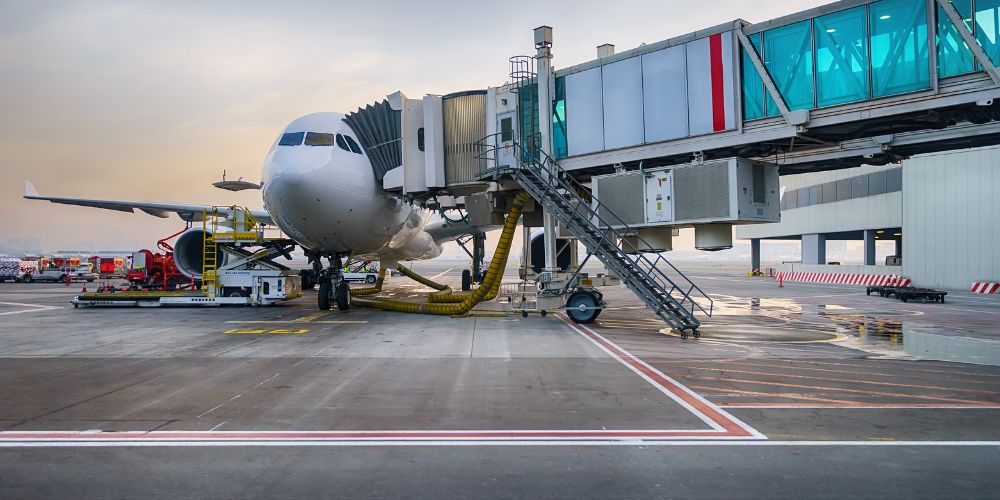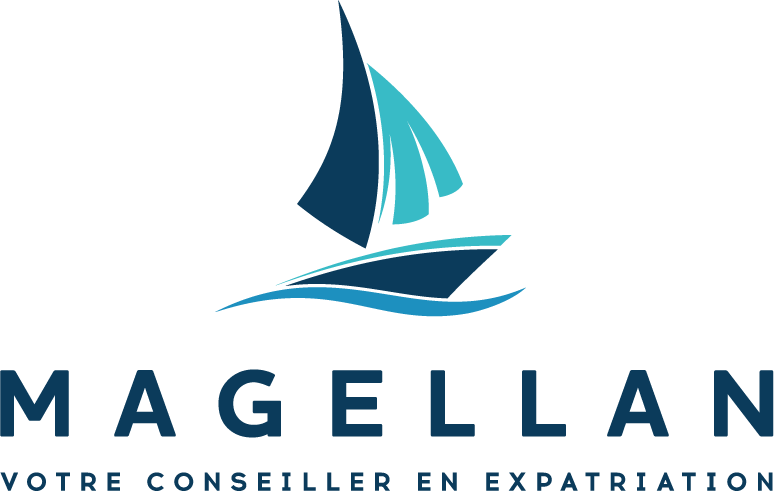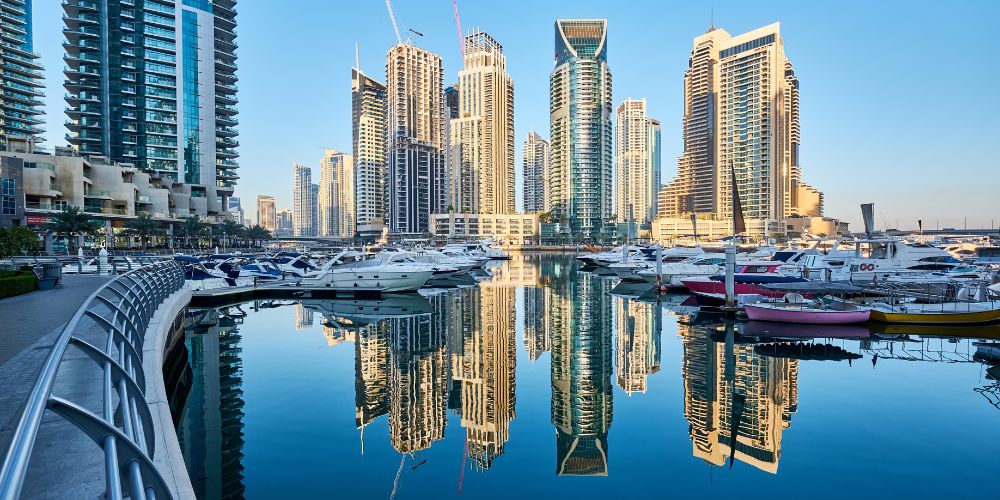
Dubai opens onshore market to Free Zone companies: What foreign investors need to know in 2025
A strategic opening for international investors
On April 29, 2025, the Executive Council of Dubai passed Resolution No. 11 of 2025, marking a significant shift in the emirate’s regulatory framework. Under this new rule, companies registered in free zones (Free Zone Establishments (FZEs)) can now operate on the broader emirate without creating a separate legal entity. This represents a valuable opportunity for foreign investors to expand with fewer administrative hurdles.
The reform is part of Dubai’s broader D33 agenda, which aims to double the size of the local economy by 2033. It signals a clear commitment to attracting international investment and supporting the growth of foreign businesses, particularly those already active in free zones.
Magellan, your expatriation advisor, outlines how to seize this strategic opportunity to grow your presence in Dubai while safeguarding your tax, legal, and operational interests.
What is a Free Zone Establishment (FZE) in Dubai?
A Free Zone Establishment (FZE) is a business entity registered within one of Dubai’s many specialized free zones. These zones are designated economic areas created to attract foreign investment by offering a range of strategic advantages:
- 100% foreign ownership, with no requirement for a local partner;
- Tax exemptions on profits and imports, within the scope of applicable regulations;
- Streamlined procedures for company formation and capital repatriation;
- Sector-specific infrastructure—logistics, fintech, media, healthcare, and more, with tailored support services.
Until recently, FZEs were limited to operating within their designated free zone or in international markets. However, Resolution No. 11 of 2025 now allows these companies regulated access to Dubai’s onshore market, without forfeiting the benefits of their free zone status.
Expanded access to the local market
Until now, companies based in Dubai’s free zones were limited to operating within their designated zones or internationally. Direct engagement with Dubai’s onshore market required either a local agent or the creation of a separate legal entity.
The 2025 resolution introduces greater flexibility through three distinct options:
- Establish a branch in Dubai (a model that already existed);
- Open a branch while retaining the main office in the free zone
- Apply for a temporary permit for specific activities—without needing a physical presence—for one-off or limited-scope operations
These pathways allow Free Zone Establishments to explore the local market, build commercial ties, or deliver services without significantly altering their legal or operational setup.
High-potential regulatory simplification
The implications for investors are significant. Free Zone Establishments can now participate in public tenders, sell directly to customers in mainland Dubai, and host commercial events, without the legal constraints that previously limited such activities.
In the coming months, authorities will publish a detailed list of permitted activities. Eligibility will vary depending on the type of license obtained, whether a branch or a temporary permit. Importantly, companies will be required to maintain strict accounting separation between their onshore and offshore operations.
This separation is key to ensuring compliance with the applicable tax framework, particularly the distinction between income subject to corporate tax (onshore) and income that continues to qualify for the 0% rate under free zone conditions.
Tangible benefits for foreign investors
The primary advantage of this reform is clear: companies can now access Dubai’s vibrant onshore market without the traditional requirements of setting up a local entity or partnering with an Emirati sponsor. This creates a strategic opening, particularly for:
- Service providers—such as consulting, engineering, or digital firms—looking to serve clients based in Dubai;
- Industrial or commercial groups aiming to test a product or distribution channel locally;
- Startups and scale-ups seeking to enter a global business ecosystem without overextending their operations.
The “branch license with free zone head office” model offers several benefits: tax efficiency, lower overhead (no need for a physical office in Dubai), and the ability to operate onshore with formal legitimacy.
Meanwhile, the temporary permit allows for focused market testing—ideal for participating in trade shows, delivering one-off services, or organizing corporate events—without long-term commitments or structural changes.
Key considerations before making a decision
While this reform marks a significant move toward greater economic flexibility, it also comes with important compliance requirements:
- Companies must maintain separate accounting records for onshore and free zone activities;
- Local labor laws apply to employees working onshore and must be strictly followed;
- The appropriate sector-specific licenses must be obtained from the Department of Economy and Tourism (DET);
- Free Zone Establishments have one year from the regulation’s publication date to comply, with possible extensions under specific conditions.
Beyond compliance, businesses should carefully evaluate whether onshore expansion is financially viable. In some industries, regulatory or tax constraints may reduce the attractiveness of partial entry into the local market. Each case deserves a tailored analysis.
A structured approach to opportunity
This reform presents a valuable opportunity for any foreign investor already operating—or planning to operate—in Dubai. But making the most of it requires a clear understanding of the legal, tax, and operational dimensions involved.
At Magellan, we guide international companies through every stage of their establishment in Dubai, especially in light of evolving regulations like Resolution No. 11 of 2025. Our mission is to help structure your expansion on a foundation that is strategic, sustainable, and fully compliant with local requirements.
Our support includes:
- Strategic analysis of the legal and tax framework aligned with your business model;
- Fast-tracked acquisition of licenses or activity permits through our established local networks;
- Deployment of a tailored accounting system to separate onshore and offshore financial flows;
- Legal and administrative assistance with hiring and fulfilling local employment obligations;
- Ongoing regulatory monitoring and preparation of required annual reports.
Conclusion
Resolution No. 11 of 2025 signals a new chapter in Dubai’s economic liberalization. It creates a gateway for free zone companies to access the local market while preserving a streamlined and efficient operational setup. For foreign investors, it presents a chance to strengthen their foothold in the emirate, without the need for a full structural overhaul.
That said, capitalizing on this opportunity requires clear vision, informed strategy, and a solid understanding of the regulatory landscape. At Magellan, we support decision-makers in turning this policy shift into a competitive edge. Whether you’re already established in Dubai or exploring your entry, our team helps you navigate this evolving framework with confidence.
To evaluate your options or plan your next move, contact our consultants specializing in the Dubai market.
Source:
New Executive Council resolution issued to regulate free zone establishments operating outside designated zones in the Emirate of Dubai – www.dentons.com







Leave a Reply